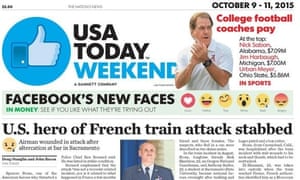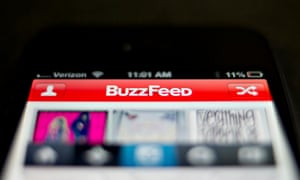Read the article from Media Magazine: The Rise and Rise of UGC (Dec 2009). Use our Media Magazine archive, click on MM30 and go to page 55.
https://drive.google.com/folderview?id=0B0i5diL3vrEiSGxRNHIyZmM4Ums&usp=drive_web
Next, create a blogpost where you make notes from the article under the following headings:
Examples
- Caught Rodney King, an African-American, after a high speed chase, the officers surrounded him, tasered him and beat him with clubs. The event was filmed by an onlooker from his apartment window. The home-video footage made prime-time news and became an international media sensation, and a focus for complaints about police racism towards African-Americans.
- Asian Tsunami on December 26th 2004 was another turning point for UGC. Much of the early footage of events was provided from citizen journalists, or ‘accidental journalists,’ providing on-the-spot witness accounts of events as they unfolded. Tourists who would otherwise have been happily filming holiday moments were suddenly recording one of the worst natural disasters in recent times.
- The London bombings on July 5th 2005, provided another hard-hitting and emotive. An audience used to relatively unmediated reality through the prevalence of reality TV can now see similarly unmediated footage on the news.
- Video footage that 23-year-old Seung-Hui Cho,an undergraduate at Virginia Tech, mailed into NBC News. Between his first attack, when he shot two people, he sent the package from a local post office, before going on to kill a further 30 people.
- Mumbai bombings
- Hudson river plane crash
Theory (audience reception etc.)
Benefits to institutions
- Citizen journalism benefits institutions as it makes their company more known; they're gaining more views from the public.
- Also, huge companies such as Google have brought social networking sites such as YouTube to become more known and popular.
- Flickr is now owned by Yahoo, Microsoft invested in Facebook, and News Corporation, is owned by Murdoch, bought MySpace.
Benefits to audience
- It has benefited audiences dramatically as they are able to see the true original story of what had actually happened, without anything being manipulated by the editors.
Wider issues and debates
- However, audiences may misinterpret the footage in another way as the quality maybe be poor e.g too shaky and blurry.
- Also, editors may not use the whole footage, they may cut some things out of it to make it seem less damaging
- Creates moral panics
SHEP
Social
- Creates moral panics
- Causes the public to take action e.g protests by the majority - which could lead to destruction and chaos
- Fear of unemployment by journalists
- Historical
- The only way for news to get around was by listening to the radio or by word of mouth as advances technology e.g phones with cameras, were not invented then
- Economical
- Moral panics, which turns into chaos, leads to billions of pounds to make everything back to the way it was
- However, as everyone is producing new content, journalist fear of losing their jobs as no one would turn to them, because it is better to look at things in a video rather than reading it
Political
- Causes chaos with politics if riots occur
What is meant by the term ‘citizen journalist’?
The term citizen journalism, is where the public record footage themselves and publish it on social networking sites such as YouTube for everyone to watch globally e.g A man recorded police officers strangling his friend to death and posted it online for everyone to see
What was one of the first examples of news being generated by ‘ordinary people’?
Rodney King, an African-American, after a high speed chase, the officers surrounded him, tasered him and beat him with clubs. The event was filmed by an onlooker from his apartment window. The home-video footage made prime-time news and became an international media sensation, and a focus for complaints about police racism towards African-Americans.
What is one of the main differences between professionally shot footage and that taken first-hand (UGC)?
Professional footage is shown after the incident has happened - its not live. However, it may have been edited to make the scenario seem not so damaging. Also footage is clear. Whereas, with first-hand footage, it is shown there and then; at the time the incident had occurred, it shows the audience everything that occurred, although the footage is unclear and blurry.
What is a gatekeeper?
Gatekeepers are people who are an attendant employed to control what goes through a gate e.g footage that can be published on YouTube.
How has the role of a gatekeeper changed?
The role of the gatekeepers have changed dramatically as they allow sensitive topics/footage to be publish on social networking sites. They are not as harsh as they used to be e.g pornography is accessible for everyone of all ages.
What is one of the primary concerns held by journalists over the rise of UGC?
They fear that due to all the content produced by citizens, they will become unemployed as the public are more likely to watch what they have recorded, which is all legit, rather than read something which may have been twisted by journalists - not the full story.
What impact is new/digital media having on the following:
News stories - The public are less likely to read these stories as they'd prefer to watch the real thing
The news agenda - More exciting and interesting stories are shown on new and digital media, which, could lead to a decline in news stories - they would need to produce better stories than others to still exist.
The role of professionals in news - their jobs could go into a decline as the public would watch footage that hasn't been manipulated with than footage that has.





